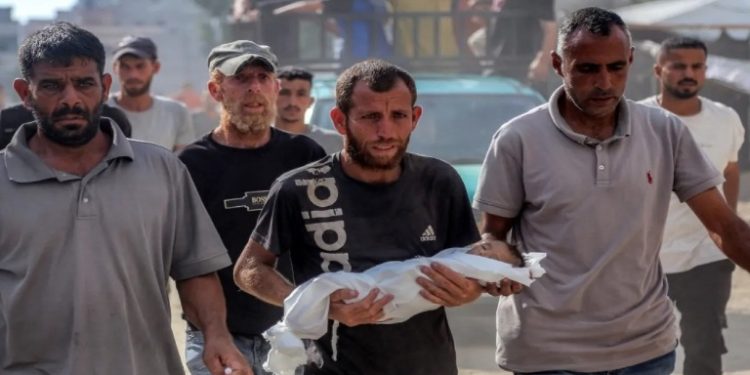Today, Friday, the child Abdel Qader Al-Fayoumi died at the Baptist Hospital in Gaza City due to severe malnutrition caused by the worsening famine in the Gaza Strip. This raises the number of deaths due to hunger to 114, most of them children.
This tragic toll reflects the international community’s failure to provide even the minimum protection for children and civilians trapped under siege in Gaza, at a time when famine has become a systematic method of killing, used as part of the comprehensive blockade imposed by the Israeli occupation.
Every day, Gaza’s collapsing healthcare system receives new cases of children suffering from varying degrees of malnutrition.
Medical estimates indicate that nearly 900,000 children in the Strip are suffering from hunger, with over 70,000 already experiencing clinical malnutrition. Thousands of cases are classified as “severe” or “severe and life-threatening.”
In this context, the death of Abdel Qader Al-Fayoumi is a direct result of deliberate starvation policies and collective punishment targeting Gaza’s civilian population. These policies represent a flagrant violation of international humanitarian law, particularly the Geneva Conventions, which prohibit the use of starvation as a weapon in conflict and obligate occupying powers to ensure the provision of aid to populations under their effective control.
According to medical reports, malnutrition among children under five has doubled in recent months, evidence of a deepening public health disaster. It is now clear that the situation is no longer a mere humanitarian crisis but a deliberate pattern of total warfare targeting the foundations of life, including food, water, and healthcare.
In this light, the deprivation of civilians from food, medicine, and humanitarian aid—and the intentional obstruction of their entry, constitutes elements of the crime of genocide under the 1948 Genocide Convention. This includes “causing serious bodily or mental harm to members of the group” and “deliberately inflicting conditions of life calculated to bring about their physical destruction in whole or in part.”
The continued death of children from hunger is not an inevitable consequence of war, but the result of an organised policy of starvation and the destruction of essential infrastructure and services. This amounts to both a crime against humanity and genocide under international law.
Amid this humanitarian collapse, the responsibility to protect civilians—especially children—is a legal and moral obligation that can no longer be delayed. The international community must respond to what is happening in Gaza not merely as a humanitarian emergency but as a major crime demanding accountability.


























